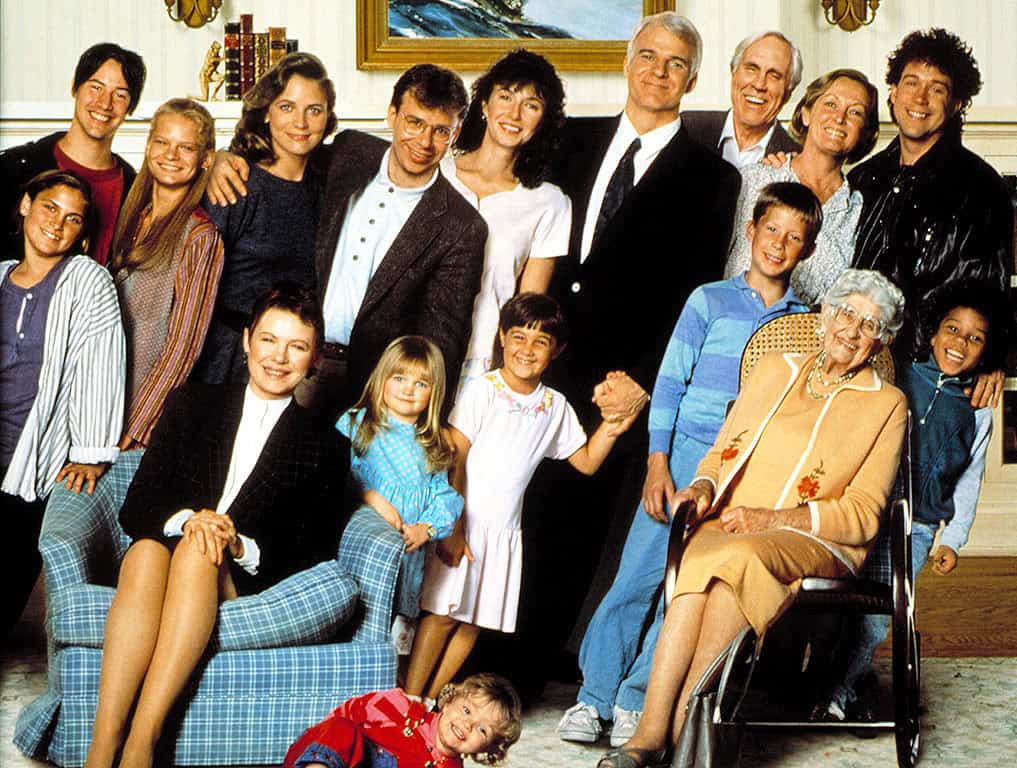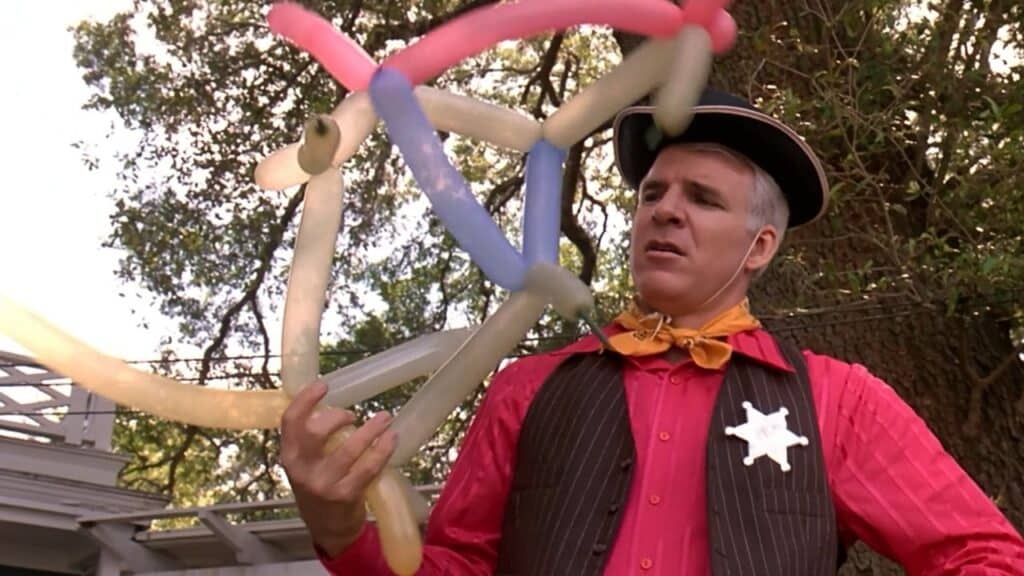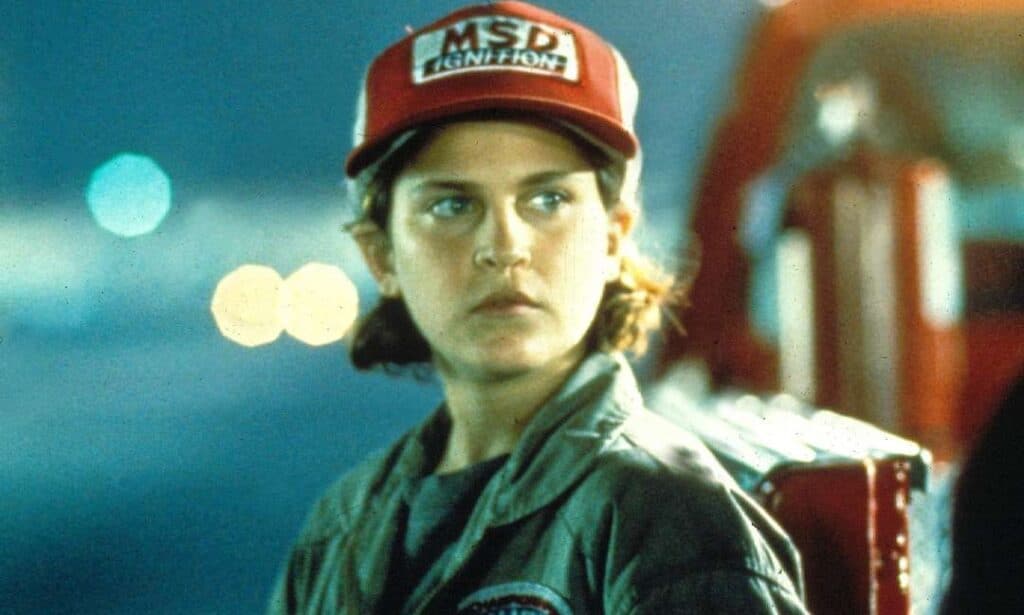
INTRO: Marriage. Divorce. Dating. Unplanned pregnancy. Psychological counseling. Gambling debts. Sexual awakening. Absentee fathers. Balloon animals. Cowboys. It’s all covered in the 1989 comedy Parenthood – which tells the stories of parents, grandparents, and a whole lot of kids. This led to Oscar nominations, financial success, and even a couple TV series follow-ups – and we’re about to hear all about it, because it’s time for Parenthood to be Revisited.
SET-UP: Legendary producer Roger Corman gave Ron Howard his first shot at directing a feature film with 1977’s Grand Theft Auto. At the time, Howard was best known for his acting roles, having played Opie Taylor on many episodes of The Andy Griffith Show and then Richie Cunningham on many episodes of Happy Days. It was while he was working on Happy Days that he met the writing duo of Lowell Ganz and Babaloo Mandel, as Ganz was a supervising producer on the show and Mandel was a creative consultant. As Happy Days wound down to its end, Howard started skipping seasons to focus on building his directing career. And in 1982, he teamed with Ganz, Mandel, and his producer friend Brian Grazer to make the comedy Night Shift. That collaboration continued on the following year’s hit Splash, which earned Ganz and Mandel a Best Screenplay Oscar nomination. The writers and Grazer didn’t work on Howard’s films Cocoon or Willow, but Ganz and Mandel did write his 1986 film Gung Ho.
By the time the ‘80s were winding down, Howard and his wife Cheryl had four children, and the experience of raising those kids gave Howard an idea he would use to bring the whole gang back together. As he explained to E Online, inspiration struck after a particularly hectic seventeen hour flight with three of his kids: four-year-old daughter Bryce and seven-month-old twins. Howard said, “We needed the diapers and the formula and all that stuff with us, but we were only allowed two carry-on items. I had twenty-four carry-on items. So I got the crew to all carry on stuff for me and my job was to look after Bryce on the flight. Within the first forty minutes of the flight, she projectile vomited all over my shirt and I had no change. And the babies were crying, and I was helping Cheryl, and we were just walking them and driving the crew crazy.” Upon arrival, he was sweating, cursing, covered with puke, and feeling worn out as he was getting their luggage from the baggage carousel. And that’s when he realized he was living through the makings of a comedy.
He turned to Grazer, Ganz, and Mandel to develop a project that would be all about parenthood. It would even be titled Parenthood. And these were the right guys to work with on such a project. Grazer had two kids of his own, Ganz had three, and Mandel had six, including a set of triplets. Howard had a fourth child on the way, so these guys had fifteen kids between them at the time. They had plenty of real world experience to draw on as they put together the script.

Parenthood features so many characters that have so much going on, you might feel like you need to draw a diagram to keep it all straight. And, by the way, at no point in the film is there a seventeen hour flight. That scenario didn’t make it to the screen. The movie does introduce us to the overlapping Buckman, Lampkin, and Huffner families, who live in St. Louis, Missouri.
Jason Robards takes on the role of Frank Buckman, an elderly workaholic who was admittedly a bad parent. But he had four kids anyway, with his wife Marilyn, who is played by Eileen Ryan but barely registers as a character. Steve Martin plays Frank’s son Gil, who is married to Karen, played by Mary Steenburgen. They have three kids: Jasen Fisher as the high-strung Kevin. Who has to start going to therapy because he freaks out about any little thing that happens. Alisan Porter as Taylor, and Zachary Lavoy as Justin, who likes to ram his head into things. Dianne Wiest plays Gil’s sister Helen, single mother to teenagers Julie and Garry Lampkin, played by Martha Plimpton and Joaquin Phoenix – who was credited as Leaf Phoenix at the time. Julie is ready to dive into adult life with her dimwitted boyfriend Tod Higgins, played by Keanu Reeves. And Garry is going through a rough patch, feeling abandoned by his father and carrying around a mysterious bag all the time. A bag that turns out to be filled with pornography. Harley Jane Kozak is Frank’s third child Susan. She’s a teacher and is married to scientist Nathan Huffner, played by Rick Moranis. Who has very strict ideas about raising their daughter Patty, played by Ivyann Schwann, as if she’s a highly intelligent adult. He has so many rules in place in their household, Susan starts eating sweets behind his back. And poking holes in her diaphragm. Then we have the black sheep of the Buckman family: youngest son Larry, played by Tom Hulce. Who shows up at Frank’s door with his previously unheard of son Cool, played by Alex Burrall, and has some major gambling debts hanging over his head. Helen Shaw also has a few memorable moments as Grandma, Frank’s mother, who is still sticking around at an advanced age. Shaw didn’t begin acting until she was in her 80s. By the time she made Parenthood, she was in her 90s. She didn’t pass away until 1997 – at the age of 100.
Although the story is set in St. Louis, filming took place in Orlando. But the filmmakers were able to hide the Florida of it all, picking locations that appear to be in middle America. The main giveaway that this was Orlando is a scene set inside a classroom where one of the students is a young Howie Dorough – who would join the Orlando-based group the Backstreet Boys just a few years later.
REVIEW: Since there were four dads brainstorming this movie together, the filmmakers would admit that it is more focused on fatherhood than anything else. They had to write what they knew. And at the end of the ‘80s, there was a feeling that the approach to parenting had shifted. Baby boomers had grown up with fathers who only had to give the family financial support and not be abusive to be considered good dads. Now the boomers were adults and they were anxious to be better, more present fathers than their dads had been. As Ganz and Grazer put it to the Los Angeles Times, “Men have a different role and responsibility than they did in another time. All of us felt that, as dads, we did not have the license, even if we were inclined, to say, ‘I’m doing my part by bringing home the check.’ Now being a good dad means going to Lamaze classes, happily cleaning up throw-up and changing diapers, and going to check out schools with the kids. People now have parties during the day so you can bring your kids.”
The character they all most strongly identified with was Gil, and this comes through in the film, as he is a standout in the ensemble. Steve Martin wasn’t a father at the time; he hadn’t even spent much time around kids before being on this set. But he did a great job of acting like a dad who’s doing his best to be there for his kids while also trying to climb the corporate ladder, which he falls off of at one point. Raising three kids is already taking a lot out of him. The worry, the responsibility, all the activity, which includes having to dress up like a cowboy and make balloon animals in one of the funniest scenes. Now his wife has revealed that she’s pregnant with their fourth child. The same news Ron Howard received from his wife during the development of Parenthood.

Gil is aiming to be a better father than his own dad, Frank, was. Frank was one of those “be a good dad by bringing home money” types, and was so busy that he would take Gil to baseball games when he was a kid just to pay an usher to watch Gil while he was off doing other things. Through the story of Frank’s dealings with the troubled Larry, we’re shown that kids can keep their parents worrying well into adulthood. The end of their story feels very true-to-life, as Frank presents a perfectly reasonable resolution to Larry’s problems… but Larry won’t go through with it. He won’t put in the effort required to change his ways. Or raise his son.
The Huffners’ story was meant to be a parody of a nightmare version of parents that was emerging at the time. Ganz said it was their reaction to “obsessive yuppie parents who aren’t satisfied unless their child plays Schubert and speaks three different languages by the second grade. It’s these people who make you feel very bad as a parent for not giving your kids all these advantages, that make you feel like you’re too lazy, not energized enough. Rationally you can’t take these people seriously, but deep down you have a fear that you may be screwing up.” So those parents got a skewering in the form of Rick Moranis’s character.
Dianne Wiest’s Helen is where most of the mother perspective comes into the film. She’s also the only character raising teenagers. She was a hippie at Woodstock in her glory days, now she’s struggling to be a single mother to two kids whose father is largely absent from their lives. And they are definitely giving her some challenges to overcome.
This movie covers so much ground with its characters, chances are high that most viewers will find something to relate to. Especially if they’re a parent themselves, or someone from a large family. It’s not just about being a parent. It’s also about being a son. A daughter. A sibling. A grandchild. And while showing these relatable characters and situations, it also delivers a good amount of laughs, with many of those, of course, coming from Steve Martin. The movie has a great sense of humor that helps save it from feeling schmaltzy. An example of this comes when Grandma drops what’s meant to be a deeply impactful metaphor about roller coasters, advising Gil to enjoy the ride of life even as it makes him scared, sick, excited, and thrilled all at the same time. It’s touching… Then, as soon as Grandma leaves the room, Gil makes a mockery of it. Saying, “A minute ago, I was really confused about life, and then Grandma came in with her wonderful and affecting roller coaster story, and now everything’s great again.” So you can let the metaphor have an emotional effect on you, even while you know it’s cheesy. And then you can laugh at it with Gil because the movie acknowledges that it was simultaneously touching and cheesy.
LEGACY/NOW: Parenthood feels like the sort of movie that would be released in December to draw in families over the holidays while also catching awards season attention… But that wasn’t the case. This was a summer release, reaching theatres on August 2nd, 1989. An interesting counter-programming move in a summer season that was packed with movies we’re still talking about to this day. Batman, Indiana Jones and the Last Crusade, Lethal Weapon 2. Honey, I Shrunk the Kids. Ghostbusters II. There were even Star Trek, Karate Kid, Friday the 13th, Nightmare on Elm Street, and James Bond sequels in there. Along with James Cameron’s The Abyss. Dead Poets Society, When Harry Met Sally, Field of Dreams, Turner & Hooch, Uncle Buck. Weekend at Bernie’s, Road House, Major League, Pet Sematary. Rain Man. Movie-goers had to be struggling to keep up, with so many classics hitting the screen. It’s a good thing ticket prices were lower, or everyone would have gone broke.
Parenthood held its own against all this big-time competition. The movie was the eighth biggest film of the summer and ended up pulling in one hundred and twenty-six million dollars at the box office.

Beyond the financial success, it was also a hit with critics and was a contender when awards season did come around. Randy Newman earned a Grammy nomination for his song “I Love to See You Smile.” Newman also got a Golden Globe nomination, with Steve Martin and Dianne Wiest being nominated for their performances. Newman and Wiest were nominated again at the Academy Awards… But Parenthood didn’t end up taking home any Oscars. That’s okay. Wiest had already won an Oscar for Hannah and Her Sisters, and would win another for Bullets Over Broadway a few years later. This was Newman’s fourth nomination, and he has gone on to be nominated almost twenty more times, winning twice along the way. Ron Howard had Best Director and Best Picture wins in his future, for A Beautiful Mind. So there’s no lack of Academy recognition here.
This movie proved to be so popular that Howard and the writers decided to make a follow-up: not a sequel, but a TV series that started airing in 1990 and had a pilot episode that was written by Ganz and Mandel. The story of the Buckmans, Lampkins, and Huffners continued on NBC for twelve episodes – although the Huffners were renamed the Merricks for some reason. Most of the characters were recast and there were familiar names in this new cast, like Ed Begley Jr. as Gil, Thora Birch as Taylor, David Arquette as Tod, and Leonardo DiCaprio as Garry. Ivyann Schwan and Alex Burrall reprised the roles of Patty and Cool. But the ratings weren’t high enough for the show to go beyond one season.
But that wasn’t the last we heard of Parenthood. Twenty years later, prolific TV series creator Jason Katims convinced the reluctant Ron Howard and Brian Grazer to let him develop a new Parenthood TV show. This one was only loosely inspired by the film. The setting was moved to California and it focused on an entirely new group of characters. It just happens to be another story of parents and children. Changing things up was a recipe for success, because this Parenthood ran for six seasons and a total of one hundred and three episodes.
So that idea Howard had after his nightmare plane ride really worked out for a bunch of people. Thirty-five years after the film was released, it still holds up as an entertaining comedy with a lot of relatable, amusing character moments. So if you haven’t seen Parenthood in a while, give it another look. It’s definitely worth revisiting.
The post Parenthood (1989) Revisited: a Ron Howard / Steve Martin classic appeared first on JoBlo.
Leave a Reply